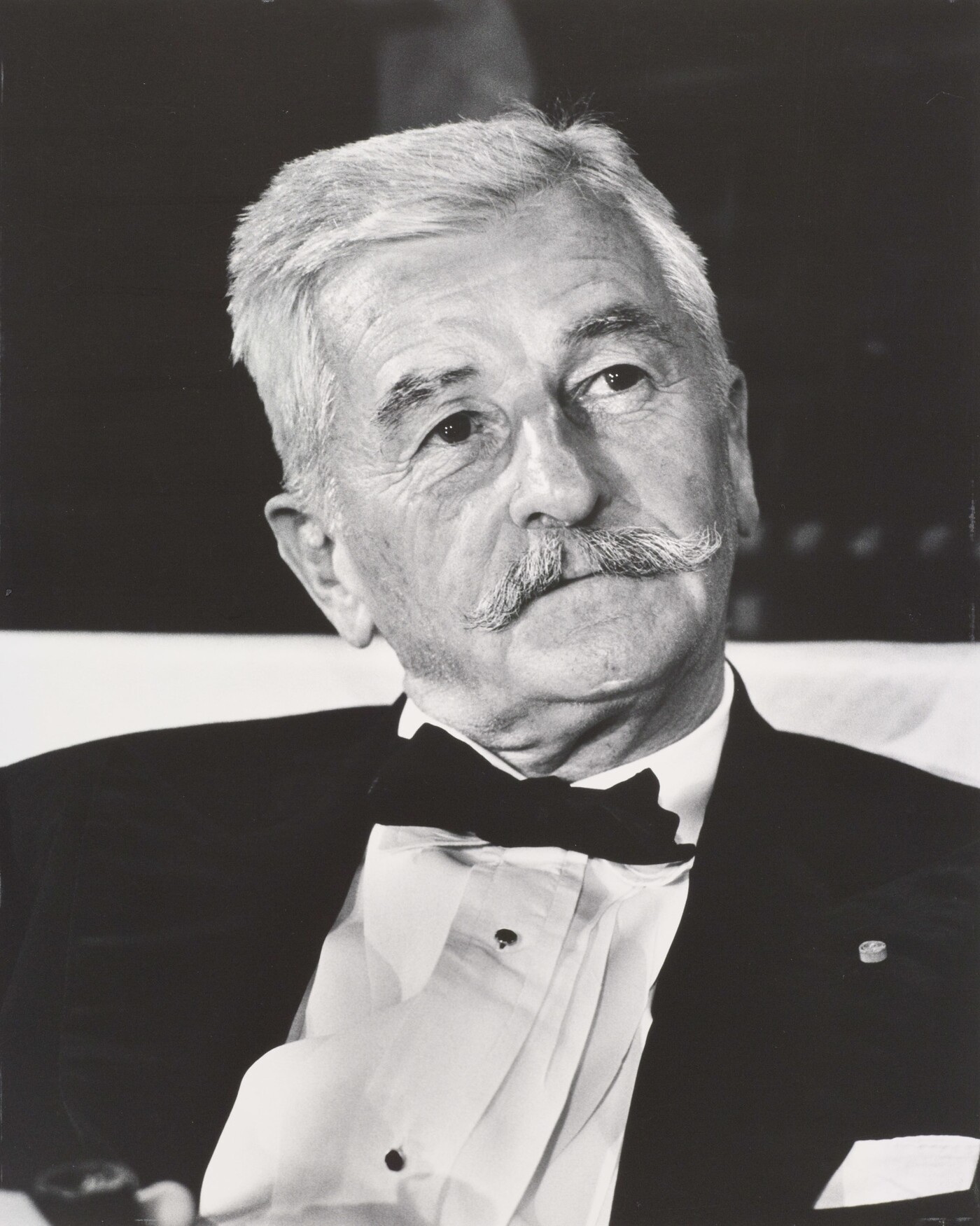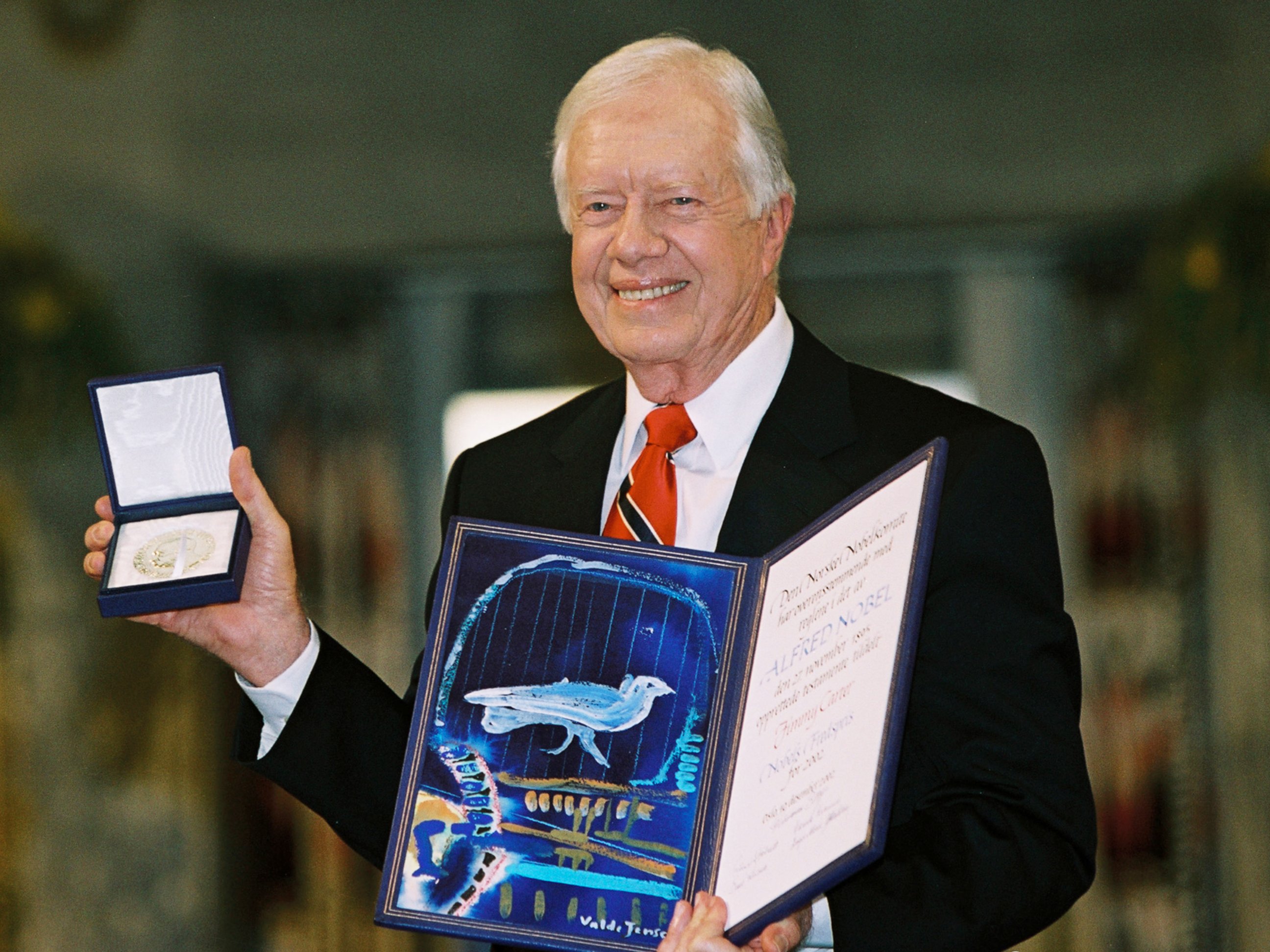Jimmy Carter: A Nobel Peace Prize Laureate and Former US President
Editor's Note: The topic of "Jimmy Carter: Nobel Peace Prize Laureate And Former US President" is of great importance as it sheds light on the life and accomplishments of a remarkable individual who has made significant contributions to the world.
Jimmy Carter, the 39th President of the United States, is not only known for his political career but also for his tireless humanitarian efforts. His commitment to peace and diplomacy earned him the prestigious Nobel Peace Prize in 2002.
Key Differences or Key Takeaways
Main Article Topics

Nobel Prize Laureate William Faulkner at West Point. 1962 | Amon Carter - Source www.cartermuseum.org
FAQs on Jimmy Carter: Nobel Peace Prize Laureate and Former US President
As a prominent figure in international diplomacy and humanitarian work, Jimmy Carter's contributions have left a profound impact on the world. To provide clarity on key aspects of his life and legacy, this FAQ section addresses frequently asked questions.

JIMMY CARTER * 2002 NOBEL PEACE PRIZE * Colorized JFK Half Dollar U.S - Source www.ebay.com
Question 1: What were the primary reasons behind Jimmy Carter's Nobel Peace Prize award?
In 2002, the Norwegian Nobel Committee recognized Carter's "decades of untiring effort to find peaceful solutions to international conflicts, to advance democracy and human rights, and to promote economic and social development." His mediation efforts in the Middle East, his work through the Carter Center, and his unwavering commitment to human dignity played significant roles in the committee's decision.
Question 2: What were Jimmy Carter's major foreign policy achievements?
Carter's foreign policy centered on promoting human rights and peaceful resolutions. He brokered the Camp David Accords between Israel and Egypt, played a key role in the establishment of the Panama Canal treaties, and pushed for arms control through the SALT II treaty.
Question 3: What are some of Jimmy Carter's key humanitarian initiatives?
After leaving office, Carter founded the Carter Center, a non-profit organization that has become renowned for its work in promoting democracy, preventing disease, and resolving conflicts around the world. The center's efforts have been particularly significant in areas such as Guinea worm eradication, conflict resolution in South Sudan, and election monitoring in post-conflict countries.
Question 4: How did Jimmy Carter's presidency influence modern US foreign policy?
Carter's emphasis on human rights and diplomacy had a lasting impact on US foreign policy. His administration's focus on nuclear non-proliferation and international mediation laid the groundwork for future efforts in arms control and conflict resolution. Moreover, his approach to treating developing countries with respect and understanding helped shape subsequent US foreign aid initiatives.
Question 5: What are Jimmy Carter's current philanthropic pursuits?
In his later years, Carter has continued to be an active advocate for peace, human rights, and democracy. He has engaged in various charitable initiatives, including building houses with Habitat for Humanity, working with the Elders to resolve global conflicts, and contributing to the Carter Center's ongoing projects.
Question 6: How can I learn more about Jimmy Carter's life and work?
Extensive information on Jimmy Carter, his presidency, and the Carter Center is available through books, articles, and documentaries. The Carter Presidential Library and Museum in Atlanta, Georgia, showcases his life and career and provides opportunities for deeper exploration.
The legacy of Jimmy Carter stands as a testament to the power of diplomacy, human rights, and unwavering commitment. His contributions have left an indelible mark on the world and continue to inspire efforts towards a more just and peaceful future.
To explore other aspects of Jimmy Carter's life and work, refer to the related article sections below.
Tips
This article presents a collection of valuable insights by Jimmy Carter: Nobel Peace Prize Laureate And Former US President, whose wisdom and experience offer a unique perspective on the pursuit of a fulfilling and meaningful life.
Tip 1: Embrace Courage and Tenacity
In the face of adversity, cultivate unwavering courage and determination to overcome challenges. Remember Carter's resolute efforts during the Camp David Accords, which brought together Egyptian and Israeli leaders and paved the way for the historic peace treaty.
Tip 2: Foster Empathy and Understanding
Cultivate a deep understanding and empathy for others, especially those from diverse backgrounds. Carter's work with Habitat for Humanity exemplifies his unwavering commitment to serving the less fortunate.
Tip 3: Seek Knowledge and Education
Engage in a lifelong pursuit of knowledge and education, recognizing that learning is an ongoing process. Carter's passion for science and diplomacy speaks to the importance of a well-rounded education.
Tip 4: Strive for Excellence in All Endeavors
Set high standards for yourself and strive for excellence in all your endeavors. Carter's successful tenure as president and his continued contributions to global peace serve as a testament to his commitment to excellence.
Tip 5: Pursue a Life of Purpose and Meaning
Identify your passions and purpose, and align your actions with them. Carter's unwavering dedication to promoting peace and human rights serves as an inspiration for living a life of meaning.
Summary:
By embracing these principles, you can cultivate courage, empathy, knowledge, excellence, and purpose in your own life, thereby creating a positive impact on yourself and the world around you.
Jimmy Carter: Nobel Peace Prize Laureate And Former US President
Jimmy Carter's life and career encompass various notable aspects, including his presidency, post-presidential work, and humanitarian efforts.
- Diplomatic Efforts: Carter played a crucial role in the Camp David Accords, bridging the gap between Egypt and Israel.
- Humanitarian Advocate: Through the Carter Center, he has championed human rights, election monitoring, and disease eradication.
- Nobel Laureate: Carter received the Nobel Peace Prize in 2002 for his tireless efforts to promote peace and democracy worldwide.
- Presidency: As the 39th US President, Carter focused on human rights, energy conservation, and the Panama Canal Treaty.
- Post-Presidency: Carter has remained active in public service, mediating conflicts and promoting global health initiatives.
- Habitat for Humanity: He has dedicated time to Habitat for Humanity, building homes for those in need alongside his wife, Rosalynn.
These aspects demonstrate Carter's commitment to peace, democracy, and human well-being. His diplomatic efforts have fostered international cooperation, while his humanitarian work has made a tangible difference in countless lives. As a Nobel laureate and former president, Carter continues to inspire and influence global affairs, advocating for a more just and equitable world.

President Jimmy Carter Videos at ABC News Video Archive at abcnews.com - Source abcnews.go.com
Jimmy Carter: Nobel Peace Prize Laureate And Former US President
Jimmy Carter's Nobel Peace Prize in 2002 was a recognition of his tireless efforts to promote peace and understanding around the world. As the 39th President of the United States, Carter played a pivotal role in mediating the Camp David Accords between Israel and Egypt, a historic achievement that earned him widespread acclaim.

The Nobel Peace Prize Lecture- Jimmy Carter Signed - Calix Books - Source www.mcssl.com
Throughout his life, Carter has dedicated himself to humanitarian causes, establishing the Carter Center in 1982 to advance global health, democracy, and conflict resolution. His work has been instrumental in eradicating diseases, promoting human rights, and facilitating peace negotiations in conflict zones.
Carter's unwavering commitment to peace and justice embodies the ideals of the Nobel Peace Prize. His legacy as a peacemaker and humanitarian serves as an inspiration to us all, demonstrating the transformative power of diplomacy and the pursuit of a more just and equitable world.
| Cause | Effect | Real-life Examples | Practical Significance |
|---|---|---|---|
| Carter's mediation efforts | Historic Camp David Accords | Peace treaty between Israel and Egypt | Resolution of decades-long conflict |
| Establishment of the Carter Center | Global health, democracy, and conflict resolution initiatives | Eradication of Guinea worm disease, promotion of human rights in Latin America | Improved health outcomes, strengthened democratic institutions, reduced conflict |
| Carter's peacemaking role | Negotiation and conflict resolution | Mediation in conflicts in Haiti, Sudan, and North Korea | Prevention of violence, promotion of dialogue, peaceful settlements |
Conclusion
Jimmy Carter's Nobel Peace Prize is a testament to his lifelong dedication to peace and understanding. His tireless efforts, both as a former president and through the Carter Center, have made a profound difference in the lives of countless individuals around the world.
Carter's legacy serves as a reminder of the importance of diplomacy, humanitarianism, and the pursuit of a just and equitable world. His work inspires us to continue striving for peaceful resolutions to conflicts and to work towards a future where all people can live in harmony and dignity.